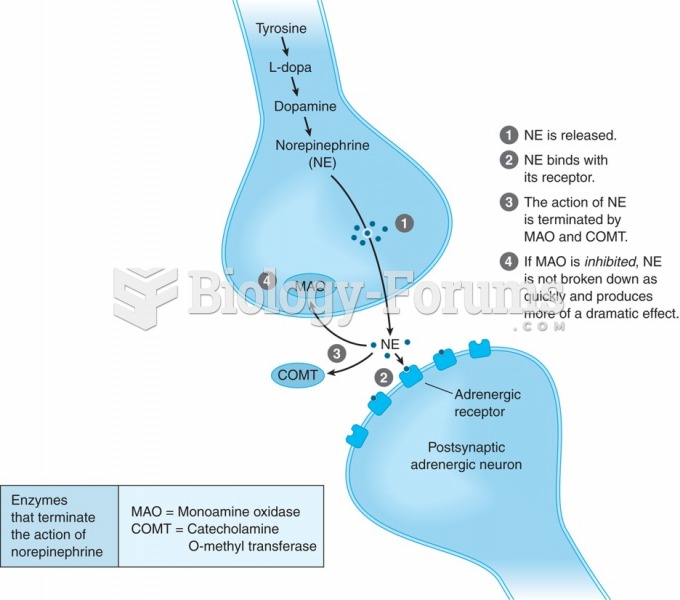Answer to Question 1
1
Rationale 1: Norepinephrine is a powerful vasoconstrictor; thus, continuous monitoring of blood pressure is required to prevent the development of hypertension.
Rationale 2:Norepinephrine (Levophed) activates alpha receptors causing vasoconstriction, which causes an increase in blood pressure, not slowed breathing.
Rationale 3:Norepinephrine (Levophed) activates alpha and beta receptors causing increased blood pressure, force of contraction, and cardiac output, not oliguria.
Rationale 4:Norepinephrine (Levophed) activates alpha and beta receptors causing increased blood pressure, force of contraction, and cardiac output. Reflect bradycardia occurs during the initial administration of the norepinephrine (Levophed).
Global Rationale: Norepinephrine is a powerful vasoconstrictor; thus, continuous monitoring of blood pressure is required to prevent the development of hypertension. Bradypnea, oliguria, and tachycardia are not typically monitored when a client is given norepinephrine.
Answer to Question 2
2
Rationale 1: Corticosteroids may be used to treat the symptoms of shock, but they do not work as quickly and with as much effect as epinephrine.
Rationale 2: Epinephrine is a drug of choice for acute anaphylactic shock because it can reverse many of the distressing symptoms within minutes.
Rationale 3: Antihistamines may be used to treat the symptoms of shock, but they do not work as quickly and with as much effect as epinephrine.
Rationale 4:Calcium channel blockers cause vasoconstriction. During shock, blood pressure is low. These drugs would cause the blood pressure to fall more.
Global Rationale: Two primary goals of shock management are to restore normal fluid volume and maintain adequate blood pressure. Epinephrine is a drug of choice for acute shock because it causes vasoconstriction and can rapidly relieve symptoms of bronchoconstriction .







